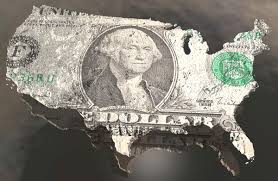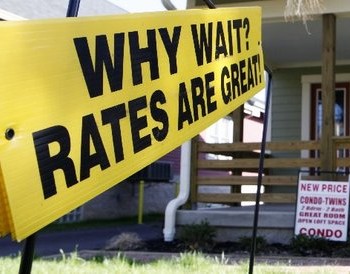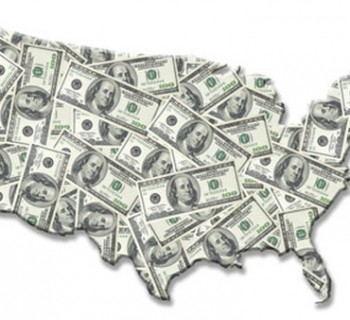 When it comes to income, it’s not what you make, but what you keep that counts. While many taxpayers think of Federal taxes as the larger percentage of taxes paid, state and municipal taxes also take a huge bite out of income. Sales tax, income tax, gas tax, real estate taxes – the list goes on and on. The greater the overall tax bill, the less available income to apply toward goals such as retirement, education funding or simply having funds for other discretionary expenses like travel. While it may not be feasible to pick up and move due to taxes, it is important to consider whether living in a state where you are spending a disproportionately large amount on taxes is feasible (or makes sense) for the long-term.
When it comes to income, it’s not what you make, but what you keep that counts. While many taxpayers think of Federal taxes as the larger percentage of taxes paid, state and municipal taxes also take a huge bite out of income. Sales tax, income tax, gas tax, real estate taxes – the list goes on and on. The greater the overall tax bill, the less available income to apply toward goals such as retirement, education funding or simply having funds for other discretionary expenses like travel. While it may not be feasible to pick up and move due to taxes, it is important to consider whether living in a state where you are spending a disproportionately large amount on taxes is feasible (or makes sense) for the long-term.
Worst
A few of the states noted probably come as no surprise, especially if you are resident of the state. What may be surprising though, is just how large state and municipal taxes can be. Here are the worst of the bunch.
New Jersey
If you are surprised, you shouldn’t be. NJ has consistently landed on the list of worst states for taxes. Just how high are taxes? The top individual income tax rate ranges from 1.4 - 8.97 percent, sales taxes are 7 percent, corporate taxes range from 6.5 – 9 percent while property taxes are the highest percentage in the country at 2.35 percent of values – ouch. More troubling is that median property values are also the 5th highest in the country so when you do the math, NJ residents are getting clobbered with real estate taxes. According to WalletHub’s 2017 study, property taxes based on NJ median prices will run you $7,400 per year – nearly 39 percent higher than the next worst state on their list. Overall, the Tax Foundation calculates “Tax Freedom Day” – the date it takes to pay all tax liabilities. NJ residents wait until May 12th to reach that point. One bright spot is that estate taxes in NJ are set to disappear after 2017. (Inheritance taxes still exist).
New York
The empire state also finds itself on the list of worst states based upon tax burden. Individual income tax rates start at 4 percent and can be as high as 8.82 percent. Sales taxes and corporate tax rates are 4 percent and 6.5 percent respectively. New York is listed by WalletHub as one of the worst for overall tax burden and 11th worst for real estate taxes. NY’s effective real-estate tax rates are 1.62 percent of property values. Estate taxes begin on estates greater than $5,250,000 for deaths on or after April 1, 2017 and before December 31, 2018 with estate taxes as high as 16 percent. The tax foundation notes that Tax Freedom Day isn’t until May 11th. Enjoying all that NY has to offer certainly comes at a price.
Connecticut
Residents of the Connecticut also face excessively high tax rates. Individual income tax rates range from 3 percent to 6.99 percent. Tack on sales taxes of 6.35 percent, corporate taxes of 9 percent and effective property tax rates of 1.97 percent. Additionally, individual estates greater than $2 million also have exposure to Connecticut estate taxes ranging from 7 to 12 percent. According the Tax Foundation, it takes residents of this state until May 21st to pay all of their tax liabilities – the latest in the nation.
The Best
The states noted below have some of the most favorable taxes in the nation, providing residents with additional discretionary income to apply toward other personal financial goals.
Wyoming
Would it be attractive to live in a state with no individual income tax, no corporate tax and no estate tax? Wyoming is just that state. Sales taxes are only 4 percent and effective property tax rates are only .61 percent. WalletHub notes that overall tax burden is low, making this state attractive for those seeking lower overall tax rates.
Delaware
This state is well-known for being a harbor for those seeking refuge from higher tax rates. Individual income tax rates range from 2.2 percent to 6.6 percent. Sales taxes are non-existent and effective real estate tax rates are only .54 percent of property values. While corporate tax rates are 8.7 percent, Wallet hub notes that Delaware has less overall tax burden than many states in the nation.
Florida
The Sunshine State is well-known for being the primary destination for migrating snowbirds (retirees) looking to escape the cold winters. While there is a sales tax of 6 percent and a corporate tax rate of 5.5 percent, residents of Florida do not pay any individual income taxes. Property tax rates are about average as compared to other states in the nation but overall tax burden is still in the top 10. Additionally, unemployment taxes are low and Florida does not assess estate or inheritance taxes making it attractive for retirees.
While taxes are an important factor when determining where to live and retire, there are many other important considerations. Family, employment, business opportunities, climate and overall lifestyle should also be considered. Living a fulfilling life may require you to live in a high tax environment. If this is the case, consider speaking to your financial adviser and tax adviser to determine strategies that may help. Tax information above can be found at each states individual website.









